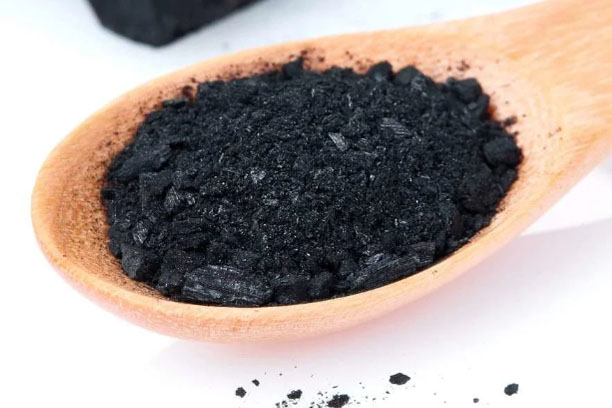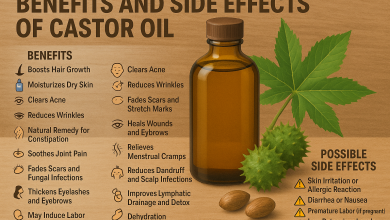In addition to its application in toxin control, activated charcoal has shown promise in the treatment of diarrhoea and the reduction of cholesterol. Although it is widely used as a home treatment, the other purported advantages for which it is sometimes used have not been well supported by scientific research.
Black, odourless, and tasteless activated charcoal powder has been used medicinally for thousands of years.
Its primary use these days is in the medical field, specifically for the treatment of drug overdoses and as an anti-poison medicine in times of emergency.
Reduced gas and flatulence, decreased cholesterol, and enhanced renal function are just some of the purported advantages of activated charcoal. Some have said it can heal hangovers, filter water, and whiten teeth.
You may still be wondering how many of these assertions have any basis in reality.
What activated charcoal is, its advantages, side effects, and dosage, based on scientific research, are discussed in this article.
Defining activated charcoal.
Charcoal that has been exposed to oxygen at high temperatures is called “activated charcoal,” and it has a much higher porosity as a result. By altering its internal structure, this treatment simultaneously increases its surface area and decreases the size of its pores.
The resulting fine black powder is either resold as-is or encapsulated as dietary supplements. Several other items, from ice cream to toothpaste, also use activated charcoal into their formulas.
It’s not the same thing as the charcoal briquettes you put on the grill.
Charcoal briquettes aren’t the same as activated charcoal, even though they have the same ingredients. Moreover, they include other human-toxic chemicals in their composition.
Why is activated charcoal so effective?
The surface area of activated charcoal is increased due to the formation of tiny pores with the application of gas at high temperatures.
The body is unable to absorb activated charcoal. This means that it will arrive in your digestive tract unaltered once you take it.
Charcoal’s negative electrical charge and porous structure make it a natural magnet for toxic and gaseous compounds with positive charges. Adsorption is the process by which liquids or gases are bound to the activated charcoal as they flow through it.
Instead of being absorbed by the body, these poisons and compounds are instead retained in the digestive tract and passed out of the body in the form of faeces.
Activated charcoal’s powerful gas-absorption properties also make it useful for controlling flatulence.
Activated charcoal and its many applications and advantages
Activated charcoal may provide a number of health advantages.
Several of the purported advantages, though, are based on studies that are now decades old, so you should take them with a grain of salt.
In addition, activated charcoal is not a therapy for poisoning or overdose and should not be given by the victim themselves. Get quick medical attention if you suspect poisoning or an overdose.
Antidote for a Poisonous Situation
Since the early 1800s, activated charcoal has been kept on hand as an anti-poison therapy in case of an accidental poisoning. Because it can block the effects of many different medications by binding to them.
Overdoses from both legal and illegal pharmaceuticals, such as aspirin, acetaminophen, and sedatives, may be treated with this compound.
An adult’s medication absorption can be decreased by as much as 74% if activated charcoal (50–100 grammes) is consumed within 5 minutes after taking the medicine.
If you use activated charcoal during the first hour following an overdose or poisoning, you may get the greatest benefit. Taking it after the first hour has passed has not been shown to be beneficial in older trials.
Newer studies, however, reveal multiple instances where it was still helpful after being administered for longer than an hour. Possible explanations include activated charcoal’s ability to prevent drug absorption and aid in the rapid excretion of any medications that have already been ingested.
Activated charcoal may also be helpful for delayed-release medicines, pharmaceuticals that inhibit digestion, and high drug dosages if administered up to four hours after administration
After an initial dosage of 50–100 grammes, many smaller doses of 10–25 grammes are sometimes administered every 2–4 hours for up to 6 hours in medical settings.
Intoxications caused by medications with a sluggish absorption rate may benefit from this multiple-dose activated charcoal (MDAC) treatment.
MDAC may be especially helpful in situations of life-threatening ingestion of dapsone, phenobarbital, quinine, carbamazepine, and theophylline, however additional study is needed to confirm this (3Trusted Source, 8Trusted Source).
Not all poisonings can be treated successfully with activated charcoal. In cases of alcohol, metal, iron, lithium, potassium, acid, or alkali poisoning, for example, it seems to have minimal impact (2Trusted Source, 4Trusted Source, 8Trusted Source).
Activated charcoal should not be used as a standard treatment for poisoning, according to both older and more recent research. Instead, it should be used with caution by trained medical personnel.
May improve kidney health
Because your kidneys have to filter out fewer substances, activated charcoal may help them do their job better (10Trusted Source).
Those struggling with long-term renal issues could benefit the most from this. The kidneys’ usual capacity to filter blood and eliminate waste products like urea and other toxins is impaired by this disease.
Activated charcoal’s ability to trap urea and other pollutants might facilitate their elimination .
Diffusion allows waste products like urea to go from the circulation to the intestines. Activated charcoal traps them in the digestive tract, where they are then passed in the faeces.
Human studies from the past show that activated charcoal may assist those with chronic kidney disease reduce their blood urea and waste product levels and enhance their kidney function.
Similar findings were discovered in a single, smaller trial, although additional investigation is required.
Perhaps alleviates fish-smell syndrome symptoms
Individuals with trimethylaminuria (TMAU), often known as fish odour syndrome, may get relief from their condition by consuming activated charcoal.
The accumulation of trimethylamine (TMA), a molecule with a stench similar to that of rotting fish, is a symptom of TMAU, a hereditary disorder.
In most people, TMA is converted into an odourless chemical before being excreted through urine. However, those with TMAU are missing the enzyme necessary to make this conversion. Because of this, TMA builds up in the body and is exhaled as a fishy odour in the form of perspiration, breath, and urine.
Research suggests that the porous surface of activated charcoal can bind to and facilitate the excretion of tiny, odorous molecules like TMA.
Those with TMAU in an old, tiny research were given 1.5 grammes of charcoal daily for 10 days. TMA levels in their urine were back to normal after this dose.
Activated charcoal, in addition to medication and dietary modifications, may assist persons with TMAU lessen their fishy odour, according to a new case study.
More recent and comprehensive research are required to verify these results.
Cholesterol levels may be lowered.
Cholesterol levels might be lowered by using activated charcoal.
Activated charcoal may reduce the absorption of cholesterol and bile acids that include cholesterol, according to some older studies.
Four weeks of taking 24 grammes of activated charcoal daily resulted in a 25% reduction in total and LDL (bad) cholesterol and an 8% increase in HDL (good) cholesterol, according to an earlier research.
Another found that people with high cholesterol levels who took 4-32 grammes of activated charcoal per day saw a reduction in both total and LDL (bad) cholesterol of 29-41%. It was most effective at higher dosages.
Similar findings have been made in other research, albeit the evidence is not conclusive. Also, the last study on this topic was published in the 1980s, so we need updated information.
Possible applications in the home, in the beauty industry, and elsewhere
Many people turn to activated charcoal as a home cure, and it has many additional potential uses in the kitchen, bathroom, and elsewhere. Most of these supposed advantages, however, lack scientific support.
Lessening of petrol emissions. Activated charcoal, taken 8 hours before to an abdominal ultrasound, has been shown in a recent research to considerably reduce gas in the gut, making it simpler to acquire a clean ultrasound image. Nonetheless, there’s a need for greater study.
Remedies for diarrhoea. Activated charcoal has shown promise in one case study as a treatment for diarrhoea, but more robust research is needed.
Filtering water. There is some evidence that activated charcoal can be used to filter water by absorbing harmful substances without changing the water’s pH or flavour.
Bleaching the teeth. It has been reported anecdotally that using this material as a mouth rinse or in toothpaste can help whiten teeth. It is believed to whiten teeth by drawing out stain-causing substances like plaque. No research, however, backs up this assertion.
The cure for a hangover. A common use for activated charcoal is as a hangover remedy. This advantage is quite doubtful, however, because this chemical does not efficiently absorb alcohol.
Care for the skin. Acne, dandruff, and even bug and snake bites may apparently be remedied by applying this to the affected areas. However there is seldom any proof to back up these assertions.
Is charcoal safe for consumption?
In most circumstances, activated charcoal is regarded harmless, and adverse responses are uncommon.
Nevertheless, it may have unpleasant side effects, the most common of which is vomiting, particularly if sorbitol is also present.
In extremely rare instances, activated charcoal has been associated with intestinal obstructions. If you have gut motility issues, take opioid or antimuscarinic drugs, or are using MDAC, you may be at a greater risk.
The American Academy of Clinical Toxicology (AACT) also advises against using activated charcoal in situations of bleeding, intestinal obstruction, or intestinal perforation.
Also, when activated charcoal is used as a poison antidote, there is a chance that it will reach the lungs rather than the stomach. This is especially important if you are vomiting, sleepy, or partially aware.
Thus, this chemical should only be administered to fully cognizant individuals.
Consider that activated charcoal may inhibit the absorption of some drugs. Before using this medicine, it is essential to see your doctor if you are presently taking other prescriptions.
How much activated charcoal should be consumed?
If you are interested in using activated charcoal for cosmetic or home uses, it is easily accessible online and at health food stores. Supplements are available in tablet or powder form. Mix powdered supplements with water or juice to make them simpler to consume.
Ensure you adhere to the dose guidelines on the label, or utilise those from the aforementioned research.
In the event of medication poisoning, seek emergency medical attention. As soon as feasible, a medical expert may provide 50–100 grammes of activated charcoal. Depending on their age, a smaller dosage of 10–50 grammes is typically administered to children.
Notably, doses for other disorders are drawn from prior research. Today, dosages vary from 1.5 grammes for the treatment of fishy-smelling illness to 4–32 grammes per day for lowering cholesterol and promoting renal function in patients with end-stage kidney disease.
Activated charcoal is a natural treatment that has several applications.
Typically, it is used as an emergency overdose or anti-poison remedy. Substantial research supports this application.
Also, it may assist in lowering cholesterol levels, combating symptoms of fishy odour syndrome, enhancing renal function, and reducing gas and diarrhoea. Yet, the majority of research demonstrating these advantages are older or of restricted scope.
Activated charcoal can interfere with other drugs; if you are presently taking medications, consult your doctor before using activated charcoal. Moreover, you may choose to begin with the lower end of the prescribed dose to determine your reaction before increasing the quantity.






